Donald Trump’s hush money case is set for a crucial hearing on Monday as a New York judge weighs when, or even whether, the former president will go on trial.
The trial had been delayed due to a last-minute document dump.
The presumptive Republican nominee arrived in court for a hearing in place of the long-planned start of jury selection in the first of his four criminal cases to go to trial.
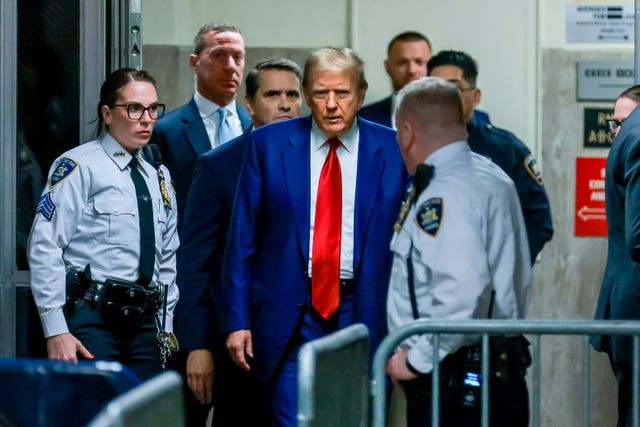
Mr Trump’s lawyers argue that the delayed disclosures warrant dismissing the case or at least delaying it by three months.
Prosecutors say there is little new material in the trove and no reason for further delay.
New York Judge Juan M Merchan has summoned both sides to court to explain what happened, so he can evaluate whether to fault or penalise anyone and decide on the next steps.
In the hallway of the court, Mr Trump told reporters: “This is a witch hunt. This is a hoax. Thank you.”
Inside the courtroom, he reached for a packet of papers positioned between him and his lawyers at the defence table and chatted with one of his attorneys as he read through the material.
Mr Trump is charged with falsifying business records.
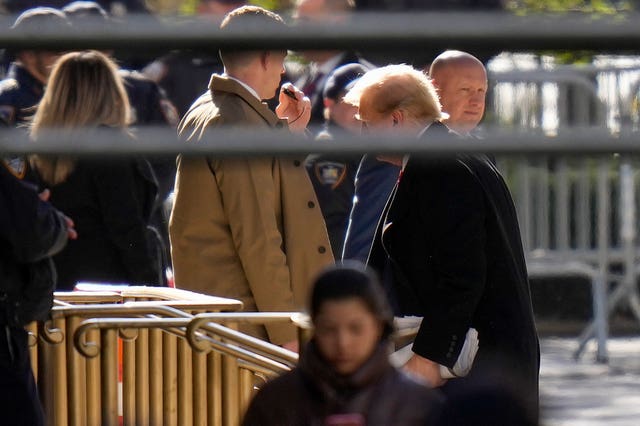
The former president has pleaded not guilty and says the prosecution is politically driven bunk.
The prosecutor overseeing the case, Manhattan District Attorney Alvin Bragg, is a Democrat.
The case centres on allegations that Mr Trump falsely logged 130,000 dollars (£102,000) in payments as legal fees in his company’s books to, according to court documents from Mr Bragg’s deputies, “disguise (Mr Trump’s) and others’ criminal conduct”.
The money went to Mr Trump’s then-personal attorney Michael Cohen, but prosecutors say it was not for actual legal work.
Rather, they say, Mr Cohen was just recouping money he had paid to porn actor Stormy Daniels on Mr Trump’s behalf, so she would not publicise her claim of a sexual encounter with him years earlier.
Mr Trump’s lawyers say the payments to Mr Cohen were legitimate legal expenses, not cover-up checks.
Mr Cohen pleaded guilty in 2018 to federal charges, including campaign finance violations related to the Daniels payoff.
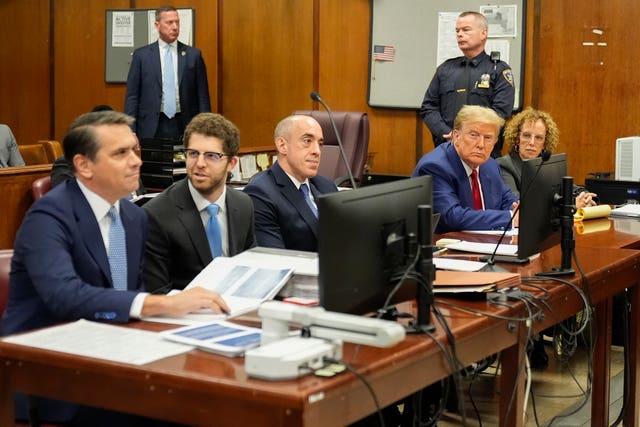
Mr Cohen is now a key witness in Manhattan prosecutors’ case against Mr Trump.
Mr Trump’s lawyers have said Mr Bragg’s office gave them a smidgen of materials from the federal investigation into Mr Cohen in June.
Then they got more than 100,000 pages more after subpoenaing federal prosecutors themselves in January.
The defence argues that prosecutors should have pursued all the records but instead stuck their heads in the sand, hoping to keep information from Mr Trump.
The material has not been made public, but Mr Trump’s lawyers said in a court filing that some of it is “exculpatory and favourable to the defence”.
They added that there is information that would have aided their own investigation and consequential legal filings earlier in the case.
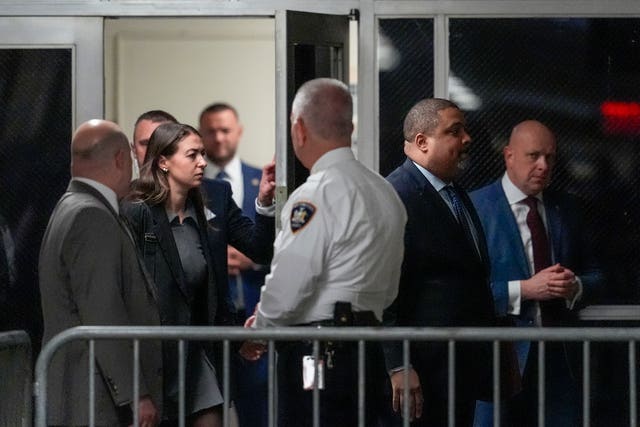
They argued in court filings that Mr Trump’s lawyers should have spoken up earlier if they believed those efforts were lacking.
Prosecutors maintain that, in any event, the vast majority of what ultimately came is irrelevant, duplicative or backs up existing evidence about Mr Cohen’s well-known federal conviction.
They acknowledged in a court filing that there was some relevant new material, including 172 pages of notes recording Mr Cohen’s meetings with the office of former special counsel Robert Mueller, who investigated Russia’s 2016 election interference.
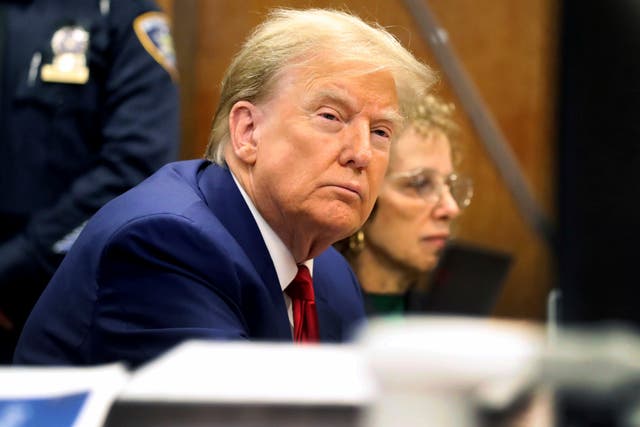
Mr Trump’s lawyers also have sought to delay the trial until after the Supreme Court rules on his claims of presidential immunity in his election interference case in Washington.
The high court is set to hear arguments on April 25.






